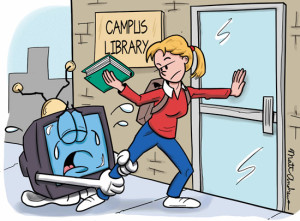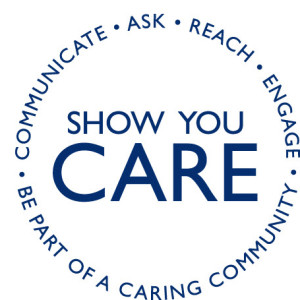College is all about classes. Every college student will have to take multiple tests throughout their college experiences. Each one of these students has there own ways of studying, or not studying, in order to do well on their exams. Some students may online their notes and take practice exams. Others may create flash cards and think about imaginary examples that will help them memorize the facts. But, what is the most efficient way to study for the big exams?
Everyone is different and has their own ways to study. One of the most important things to realize is studying takes time and requires effort. Dartmouth College created their own tips  to help students do just this in order to do better on their exams. These tips were especially meant for new students coming from high school. They pointed out that the change from high
to help students do just this in order to do better on their exams. These tips were especially meant for new students coming from high school. They pointed out that the change from high
school studying to college studying is a big step and requires a change in study habits. Some tips that school put out there included, studying in “chunks”, using daylight hours, studying actively, and finding the right place to study. Although these tips are general, they can be a good starting point when it comes to figuring out the perfect way to study.
On a less general note, there are many other ways to get active and become a better student, thus getting you in the long run when it comes to your exams. First off, during class you should make sure to stay organized with notes, be involved, and review your notes every day. Some suggestions for taking good notes include taking them in the same notebook for the  same class, dating each entry, not leaving out ideas, taking notes in an outlining format, highlighting repeated or important ideas, and including as many examples as possible to help your memory. When it comes to being involved, don’t be afraid to ask questions or for more examples. Also, when it comes to reviewing new material, research has shown that reviewing it within 24 hours of hearing it increases your retention of that material by about 60%. These are all great day-by-day ways that are proven to help in the long run.
same class, dating each entry, not leaving out ideas, taking notes in an outlining format, highlighting repeated or important ideas, and including as many examples as possible to help your memory. When it comes to being involved, don’t be afraid to ask questions or for more examples. Also, when it comes to reviewing new material, research has shown that reviewing it within 24 hours of hearing it increases your retention of that material by about 60%. These are all great day-by-day ways that are proven to help in the long run.
With all these in mind, Marcis Crede and Nathan R. Kuncel, decided to examine study habits, skills, and attitudes that help academic achievement. After studying college students, they found that study motivation and study skills exhibit the strongest relationships with both grade point average and grades in individual classes. But, more importantly they discovered that Academic specific anxiety was found to be an important negative predictor of performance.
With this result, other scientists began to look into the relationship between test anxiety and performance. According to a study done by Robert M. Topman, “this negative effect of anxiety on performance can be explained by an interference model or by a learning- deficit model.” Both models showed that stress caused negative test related thoughts, which made the  concentration of the students decline. This is an example of causation because anxiety is directed related to the decline in test grades. But, there is still a possibility that there is a third variable, such as sleep. Anxiety may cause lack of sleep that may results in tiredness while trying to take the exam, or a decline in concentration.
concentration of the students decline. This is an example of causation because anxiety is directed related to the decline in test grades. But, there is still a possibility that there is a third variable, such as sleep. Anxiety may cause lack of sleep that may results in tiredness while trying to take the exam, or a decline in concentration.
With anxiety having a negative effect on test grades, it’s important to recognize the actions that someone should take to reduce the anxiety. First, you should recognize that you must cope with your stress. Three healthy ways to cope with stress includes, getting active, engage socially, and avoid unnecessary  or unrelated stress. If these don’t work you can try identifying exactly what is making you stressed and talking to someone about it. When it comes to academic stress at Penn State, there are many people available to talk to. Counseling and Psychological services, also known as caps, are available for all students.
or unrelated stress. If these don’t work you can try identifying exactly what is making you stressed and talking to someone about it. When it comes to academic stress at Penn State, there are many people available to talk to. Counseling and Psychological services, also known as caps, are available for all students.
Overall, when it comes to studying, make sure you try numerous habits and see which ones work the best for you. Also, make sure you actually it in the time and effort of studying. Cramming for an exam or assuming that you will recognize the answers is never a good habit to get into. Lastly, remember that if you are stressed about an exam it’s important to find a way to relax before taking it.

One thing that helps me study and take notes is writing by hand. I found this article that points out that students can type faster and take more notes on a computer. But for me, if I focus on what I am writing and maybe write it again later for studying purposes, it sticks in my head much better. I am not every person, but I think it is important to look at characteristics such as these when considering the topic of studying efficiently. Nice blog!